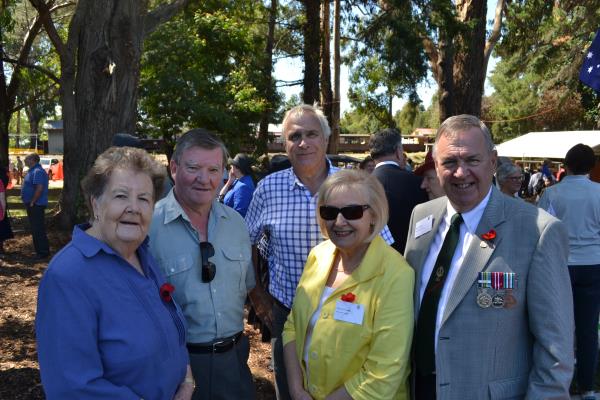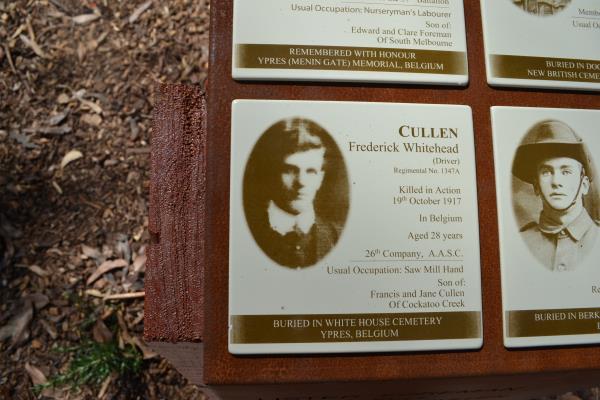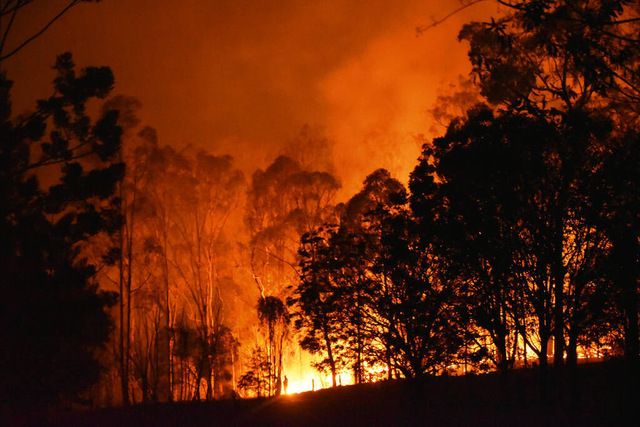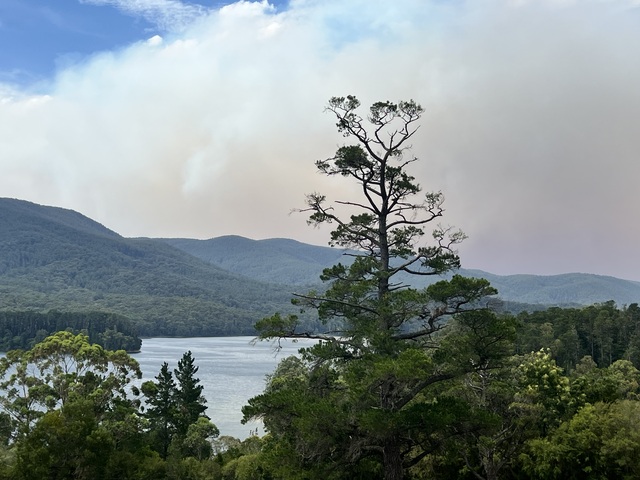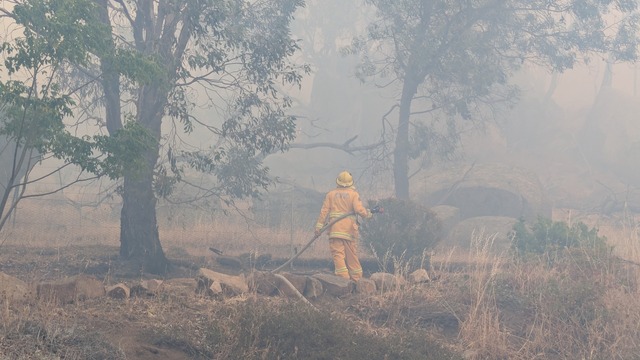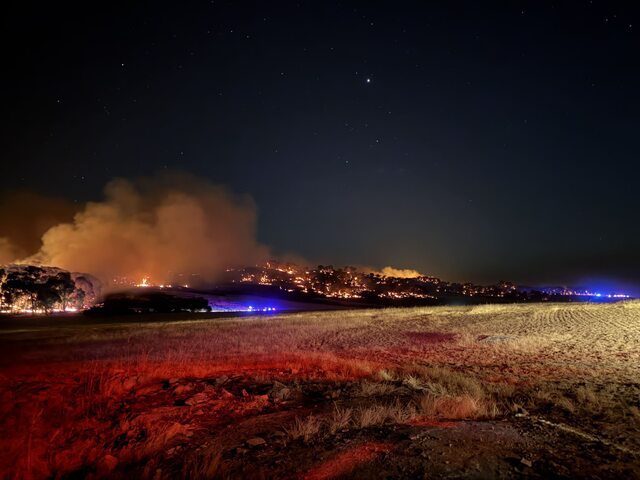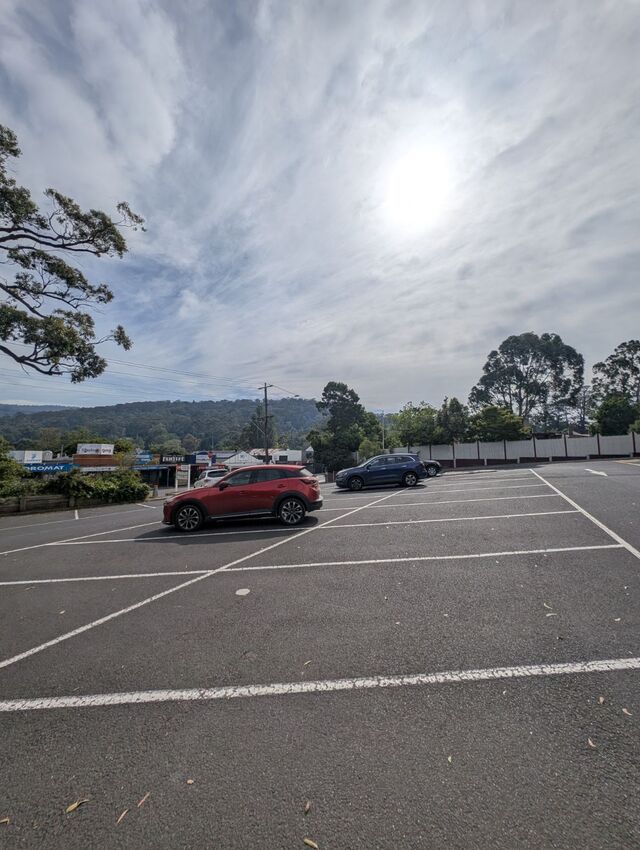By PETER DOUGLAS
THE Anzac Walk opening at Emerald last month was flooded with many tributes to those who sacrificed so much.
Along with the hype surrounding the visit from Governor-General, Sir Peter Cosgrove, the incredibly moving Walk was littered with subtle homages, such as plaques and flags, war-era costumes and even the recently erected statue of the ‘Unnamed Soldier’.
But not of least importance was the symbolic homecoming of 32 soldiers from the district, who had died in the war and failed to return to their families.
To pay respects, 32 people dressed in period costume and travelled into Emerald in Puffing Billy, with their exit from the famous steam train symbolising the soldiers finally returning home.
When stepping from the train, the honoured soldiers were greeted by their descendants, as well as thousands of enthusiastic onlookers.
Among those honoured was Fred Cullen, a Cockatoo local who was just 28 when he was killed in action, and who was one of four brave brothers who fought side by side in World War I.
At the opening was a huge contingent from the Cullen clan, including Ron, Brian, Jan and Bernie Cullen, and Dianne Young.
And their presence and enthusiasm would’ve done the brothers proud.
Descendant Ron Cullen said it would have been incredibly difficult on the family and community when the brothers headed off overseas.
“For a family on the farm, their absence would have been hard-going,” he said.
“I can imagine it would’ve taken the guts out of their business, which was a timber mill and tree-cutting.”
Originally, the Cullen family settled in Cockatoo in 1903, with a parcel of land outside the present site of the Cockatoo Primary School.
Not even a decade later, four brothers signed up to serve their country.
This was Fred, Arthur, Bill and the youngest, Alfred.
“Alfred was just 16 at the time,” Ron said.
“When great-grandfather wrote to the War Minister, he was sent home.”
However, Alfred later re-enlisted in July of 1917 under a different name.
Fred, Arthur and Bill were part of the 14th Battalion and landed at Gallipoli on the afternoon of 25 April, 1915.
Arthur was wounded within a week, Frederick within two weeks and William was also injured.
“They were all wounded at Gallipoli, but they eventually finished up in France,” Ron said.
“Fred was later killed at Ypres in Belgium.
“I’ve read the correspondence between the brothers and they missed their mate, Fred.”
The fifth brother, Frank Cullen, was a volunteer in the army and wasn’t required to go.
Frank was Ron’s grandfather, and whom Ron remembers clearly.
“We used to come up to Cockatoo as kids and muck around at grandfather’s sawmill,” Ron said.
“We also caught Puffing Billy when it was an operating train.
“I’ve got fond memories of life up here, there are many Cullens but it all comes back to Cockatoo.”
Ron admitted events such as this were an emotional time for the family, but ones which were necessary to keep their spirit alive, as well as the story of their sacrifice for their country.

